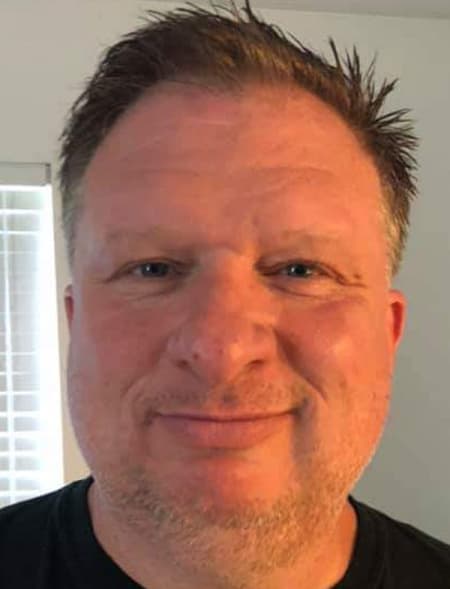**************************************************************************************
**************************************************************************************
ATLANTA – If Hubert Davis is anything as a basketball coach, he is certainly positive.
The first-year North Carolina head man’s laudatory remarks about each member of his team and even opposing players usually reaches a high degree of praise, and not because Davis can be disingenuous at times. Far from it.
That is just who Davis is. He operates from that principle daily, and it is a regular part of how he communicates with his team.
Positivity can bring about positivity, he says.
“That is intentional, I love to encourage,” Davis said following the Tar Heels’ win at Georgia Tech on Sunday. “I think it’s important to encourage people. You don’t have to look very far to find somebody to be critical of who you are. And it is all filtered through my own experiences.”
A native of Burke, VA, Davis played four years at UNC for Dean Smith, finishing his career in 1992, before spending 12 seasons in the NBA. Those 16 years were about doing what he was told wasn’t possible, and then some.
And what he learned during those phases of personal and professional growth has fueled how he communicates with his players.
“I remember growing up, and everyone said, ‘You can’t play at Carolina, you can’t do this, you can’t do that,’” Davis recalled. “Growing up, I had two people that said, ‘You can play at North Carolina;’ it was my dad and my (Lake Braddock High School) football coach (Joe Clark).
“So, I love to encourage. I love to build people up and I like to hold everyone – the players and myself – accountable. But it’s amazing what can happen when you just encourage somebody. Or when you tell somebody ‘Good job’ or ‘I really appreciate your effort.’ It just lights people up. Everybody needs it, and a huge part of my coaching is encouraging the players.”
Leaky Black understands this in a very personal way.
Black has struggled at times during his Carolina career shooting the basketball, but Davis helped remove whatever stress Black experienced from that part of his game by not only building up other elements, but making big-time requests that can serve the Heels in victory every bit as much as scoring points.
Black’s role most nights is to lock down on opponents’ best players. At 6-foot-8 with a longer wingspan, enough athleticism, and an impressive hoops IQ, the senior from Concord, NC, is versatile enough to defend players on the perimeter, those who drive, and guys who are comfortable posting on the blocks.
Sunday in Atlanta, he was tasked with slowing ACC leading scorer Michael Devoe. With some help from Anthony Harris, Black held Devoe to eight points below his average courtesy of five fewer attempted field goals than he had been averaging entering the contest.
Davis told Black he would successfully lock down Devoe, and he did.
“It just builds my confidence,” Black said about his coaches’ expressed confidence in that part of his game. “Obviously, I have a role on this team. There’s a lot of great guys on this team (and) I’ve got to find my niche to stay on the court.
“And I feel like my niche to stay on the court is to guard the best player and make it really uncomfortable for him to score and get going, and that takes them out of their offense. And that’s just pretty much my job.”
Harris, a 6-foot-4 redshirt sophomore big guard, is still working on finding his niche within this team. His playing time has been inconsistent, as he played just six minutes in the opener versus Loyola (MD), three minutes against Brown, and not at all in UNC’s third game, a win at College of Charleston. And in the Heels’ victory over Michigan last Wednesday, Harris played just two minutes.
But Davis kept telling him to be ready, his time would come, and he would deliver when called on. Harris played 14 minutes against the Yellow Jackets and was outstanding on the defensive end and giving the Heels some energy.
“Just having someone in your corner,” Harris said he appreciates about having Davis’ full support. “Being able to go talk to him when I need to talk to him, because him playing the game, he already knows what’s going on the court and off the court. Just really having that dude in your corner and to rely on is a big help for us.”
The rest of the Tar Heels hear a similar message, though tailored to them more specifically. And the words from their coach are largely positive. He doesn’t run from the negatives or difficult conversations, but his method to coaching, teaching, and mentoring aren’t about overt criticism, it’s about lifting up his guys.
“I tell them when we watch film, I want two things to happen: One, to learn, and two, to encourage,” Davis said. “We never watch film to call somebody out.”
Perhaps that is one reason the Tar Heels responded so well after a rough weekend at the Hall of Fame Tip-Off Classic when they lost to Purdue and were trounced by Tennessee, games in which the team’s defense and even effort were questioned from some circles in the media.
Communication in any walk of life is paramount to success, and Davis appears to have a handle on that because it’s simply who he is.
